Detail Overview of Family Exercises
Content
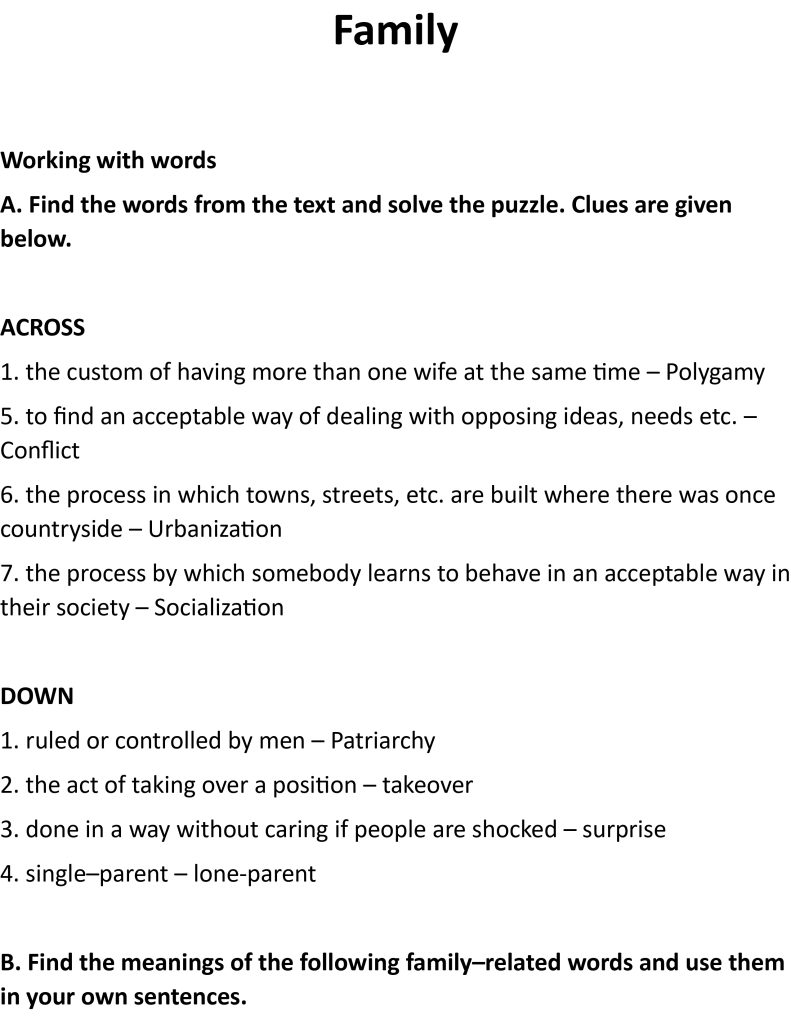
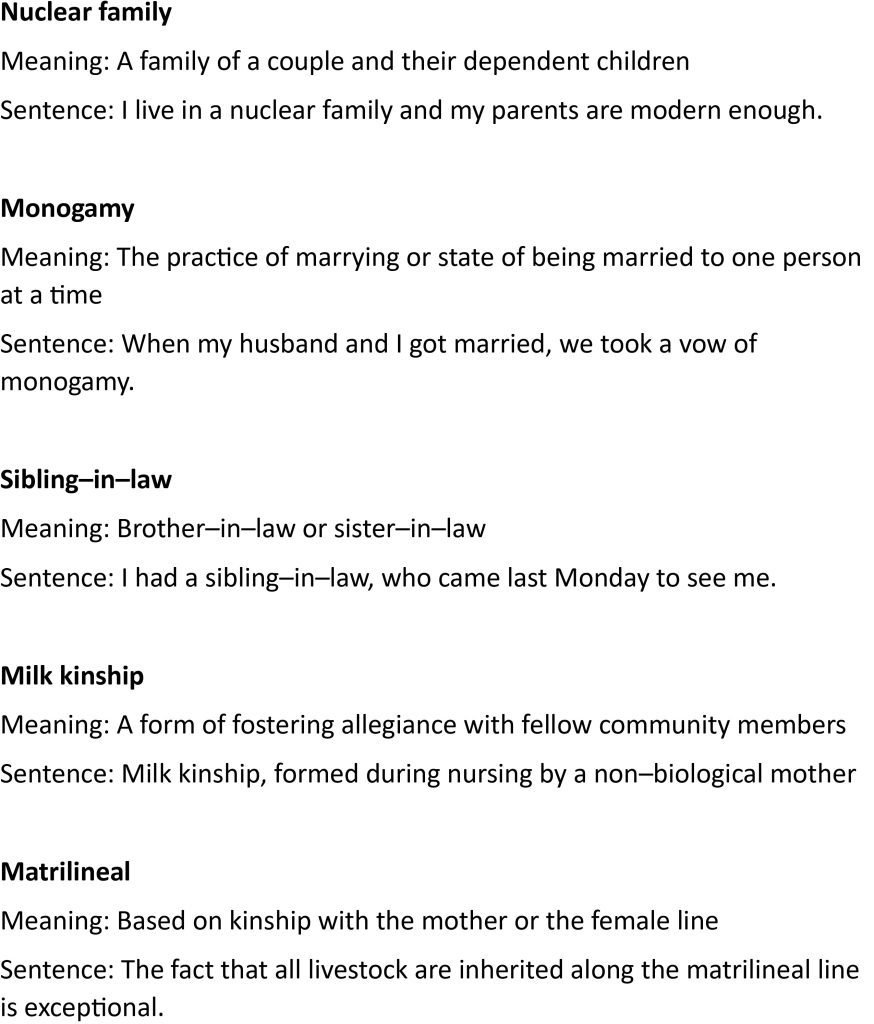
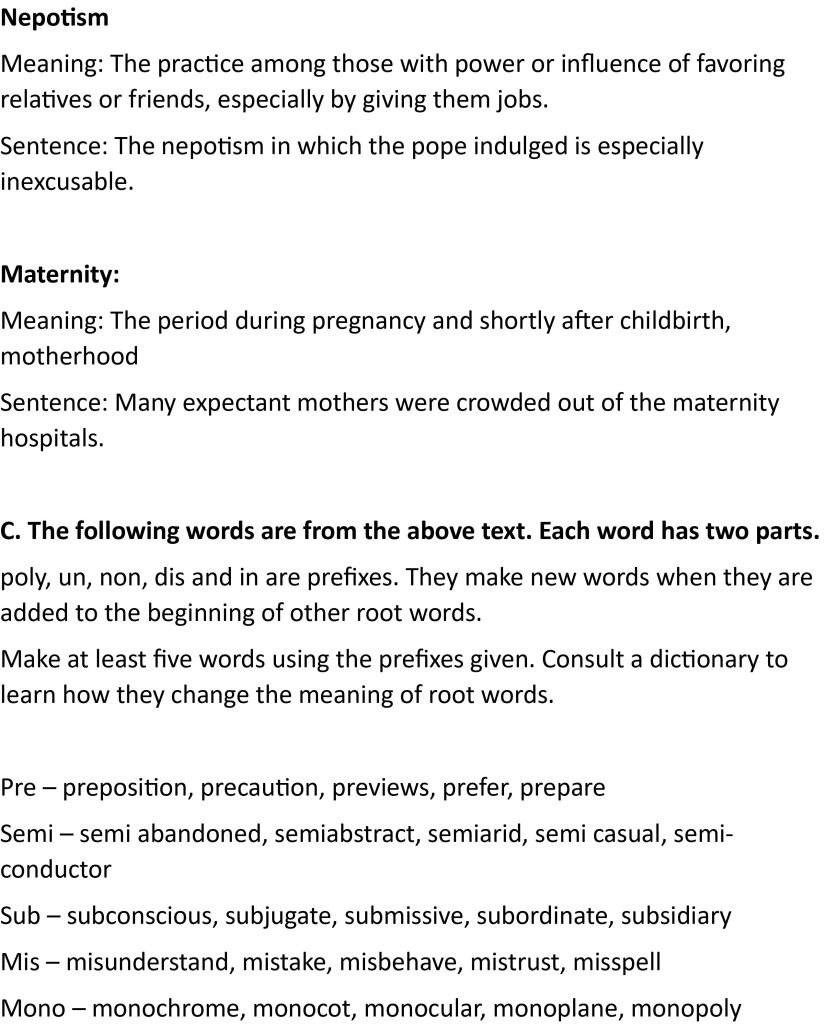
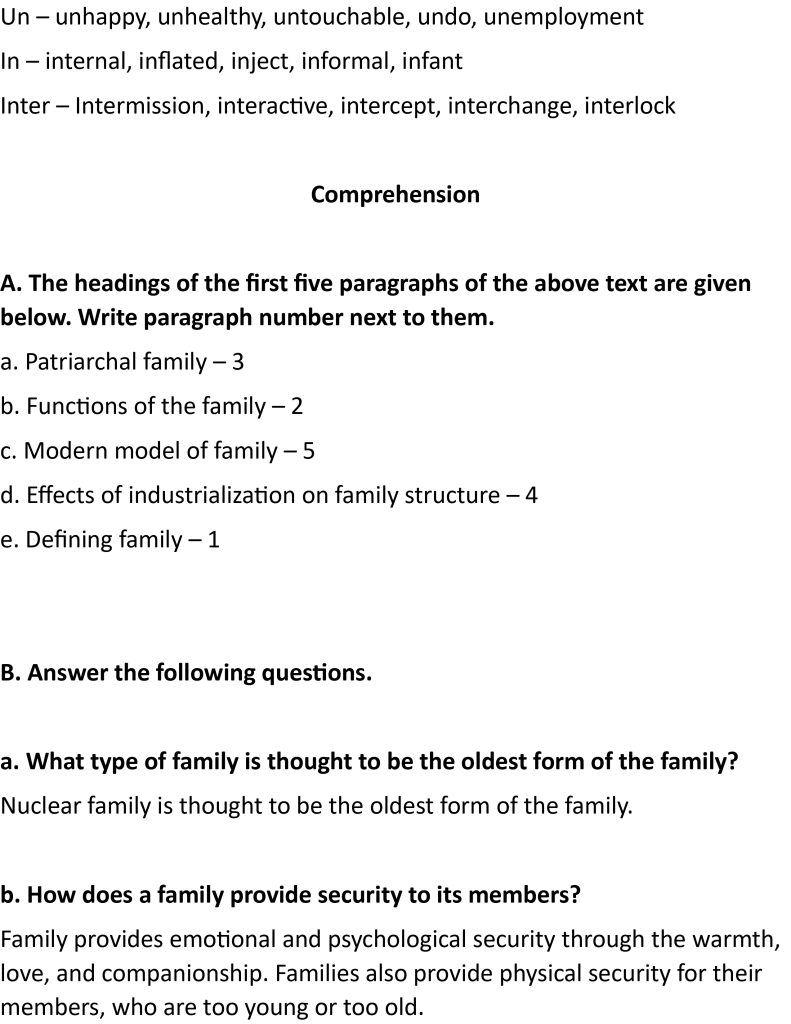
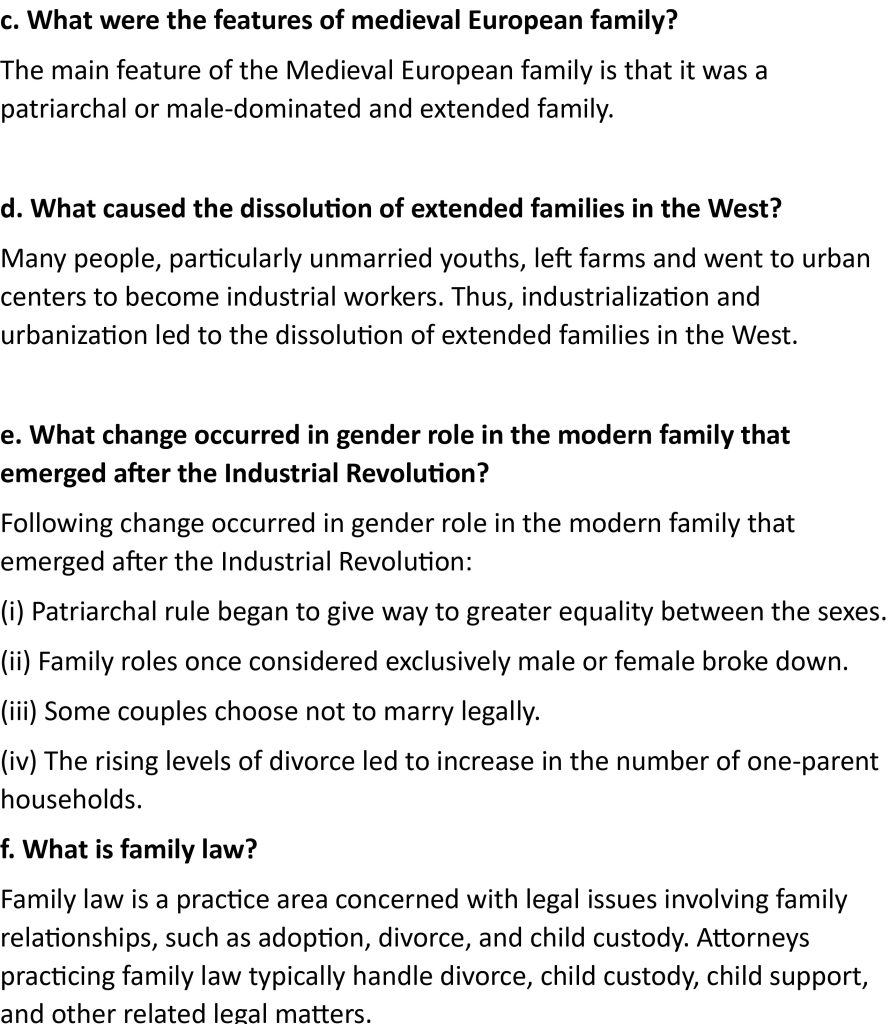
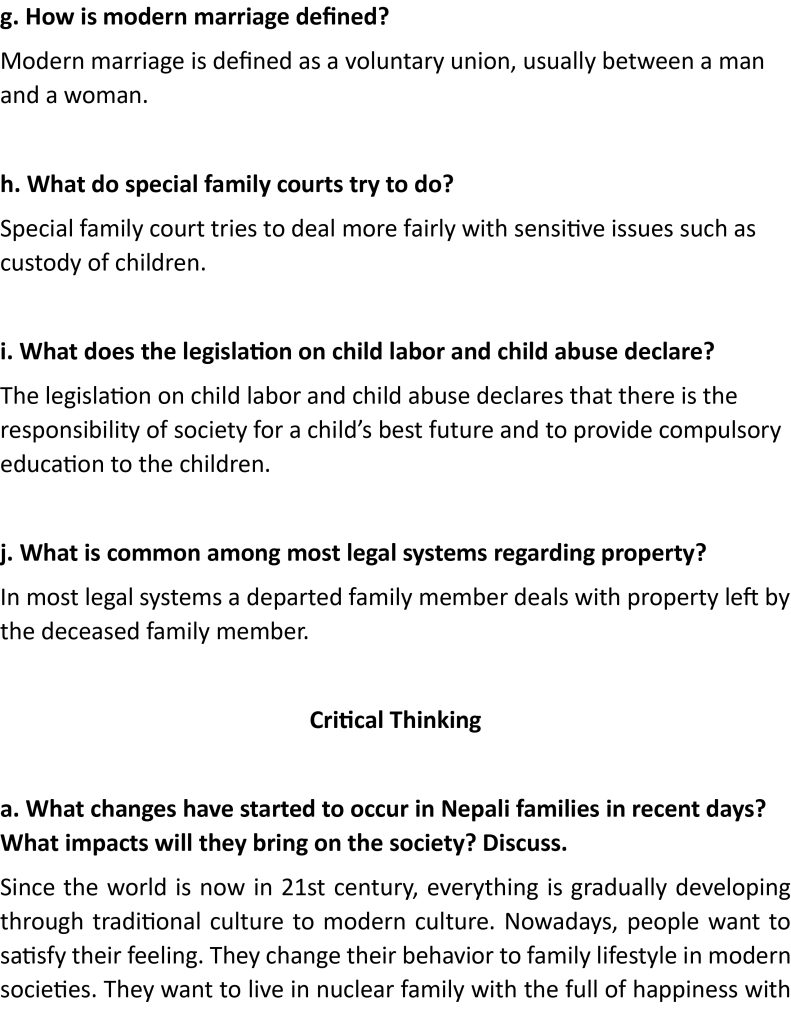
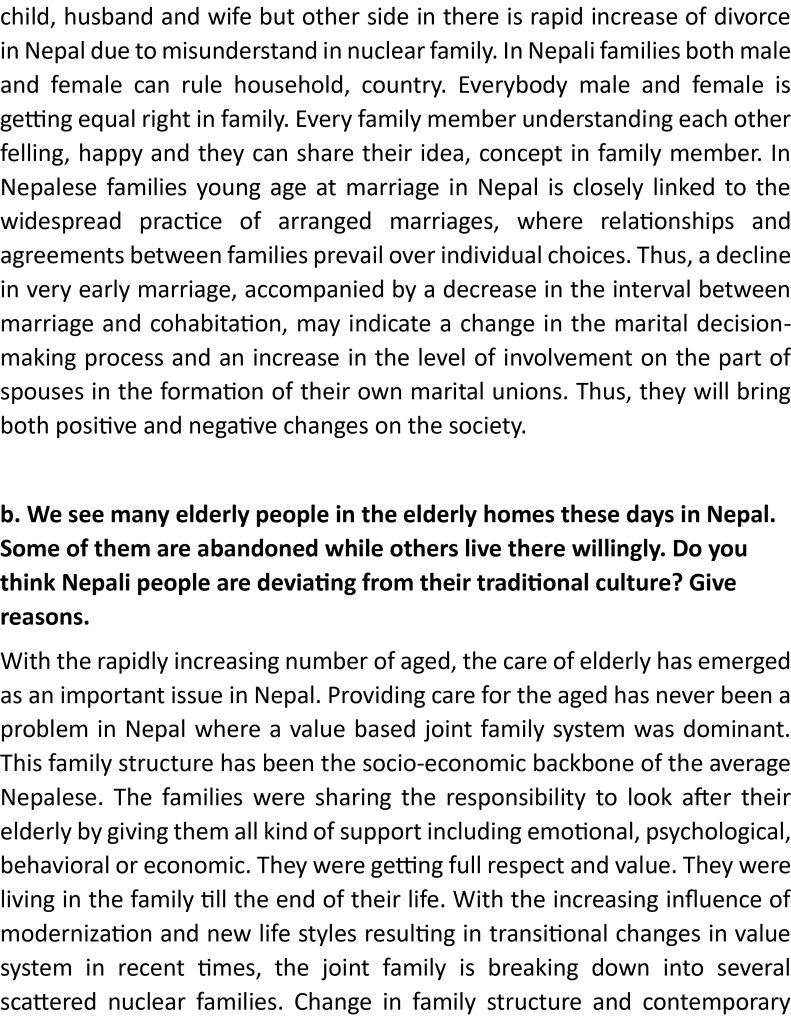
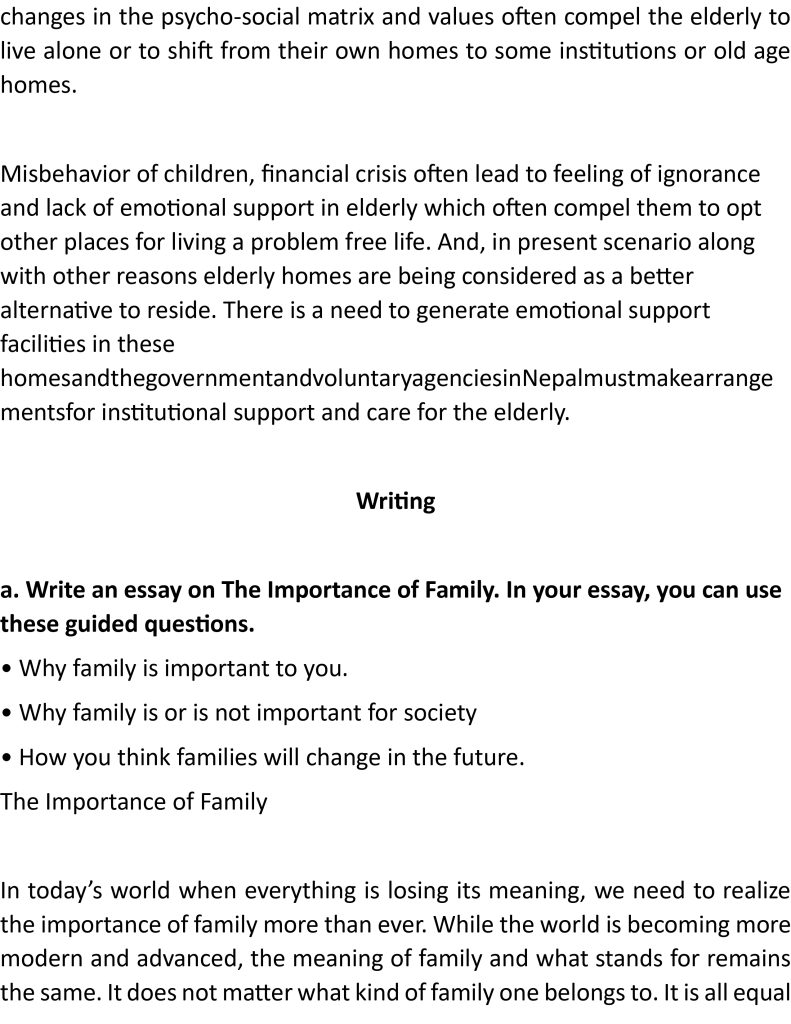
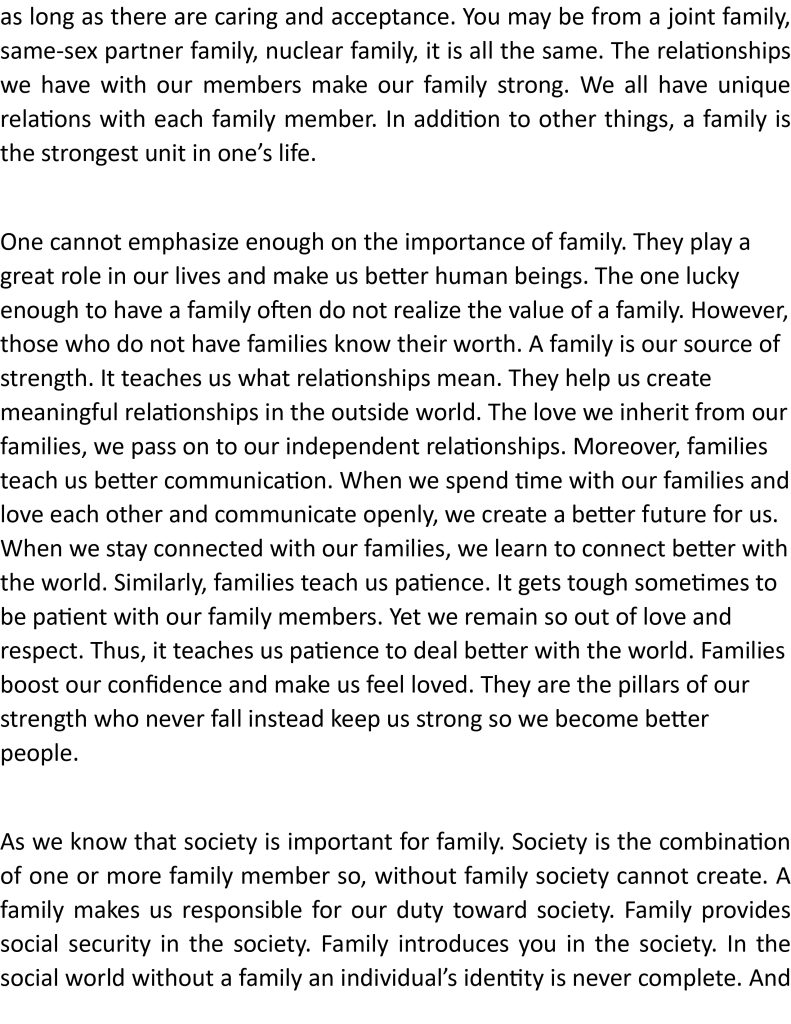

Continue reading Family Exercises in mero guru app



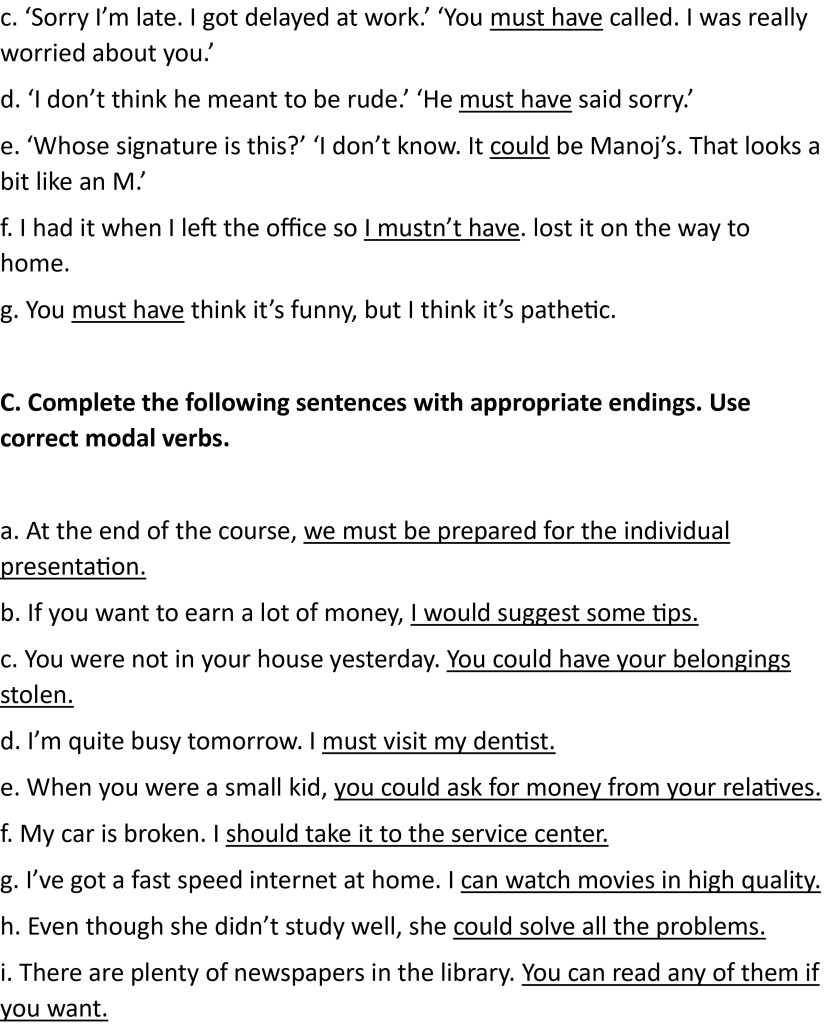

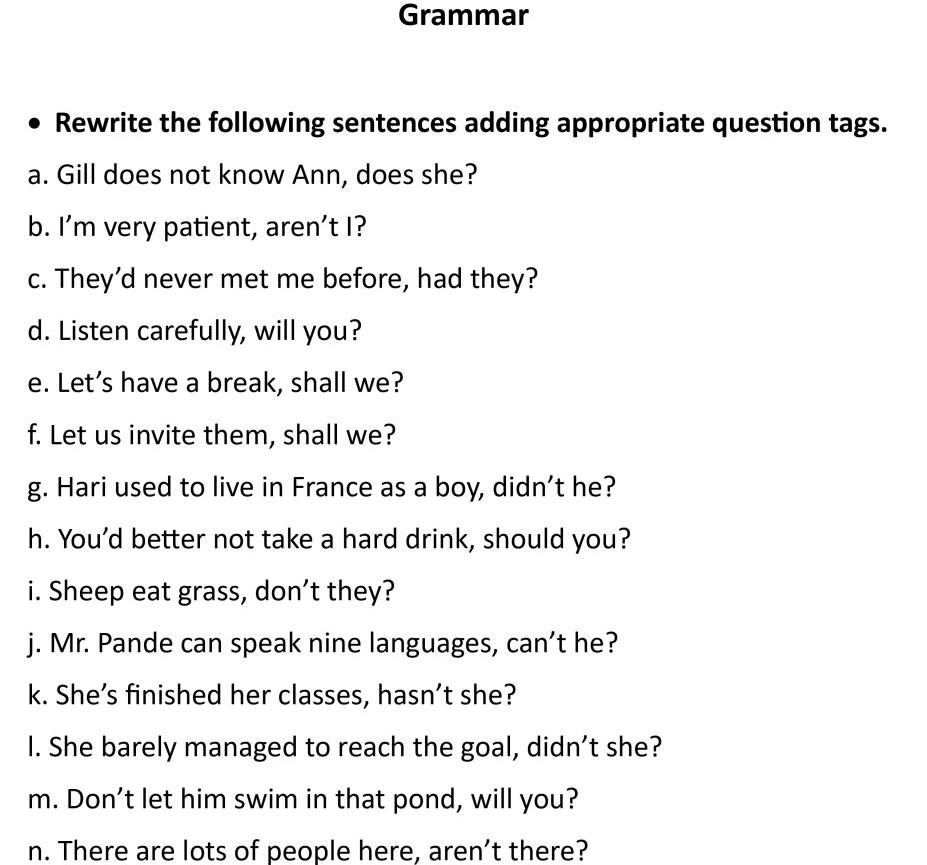
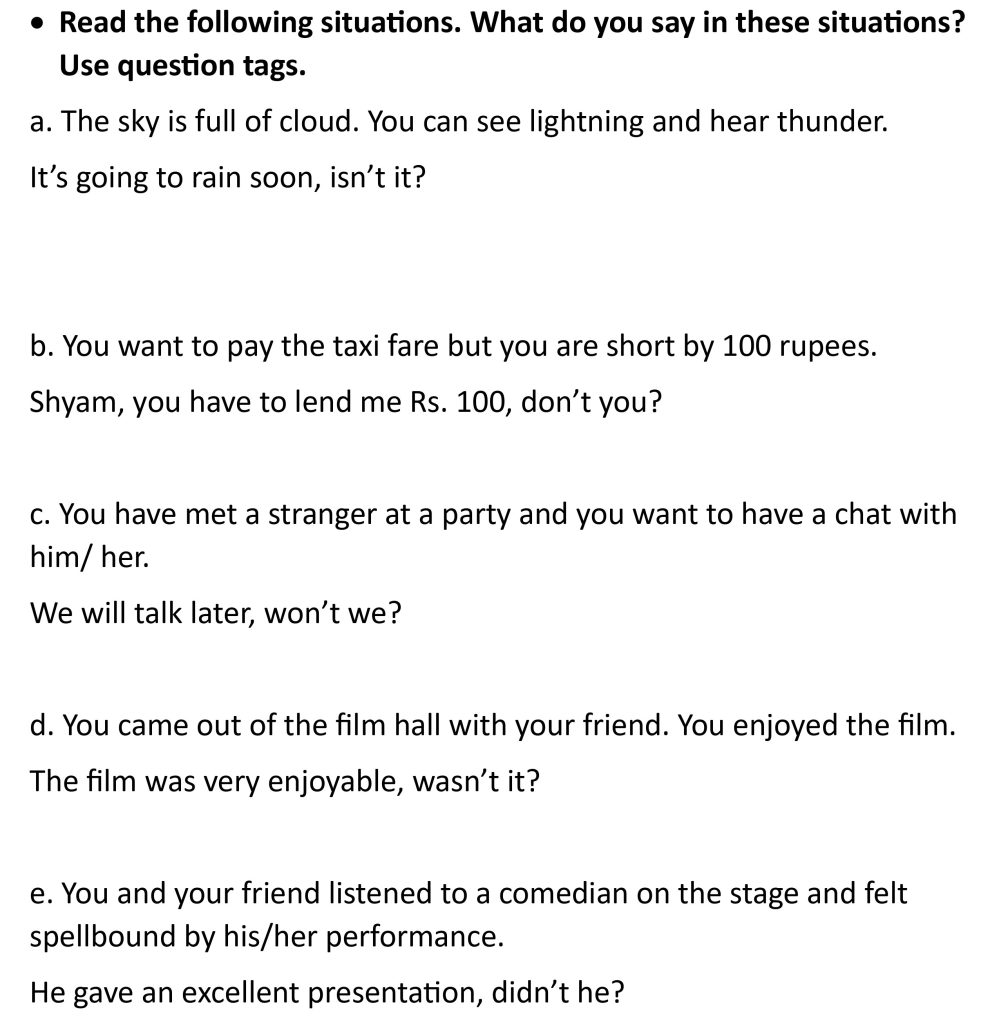
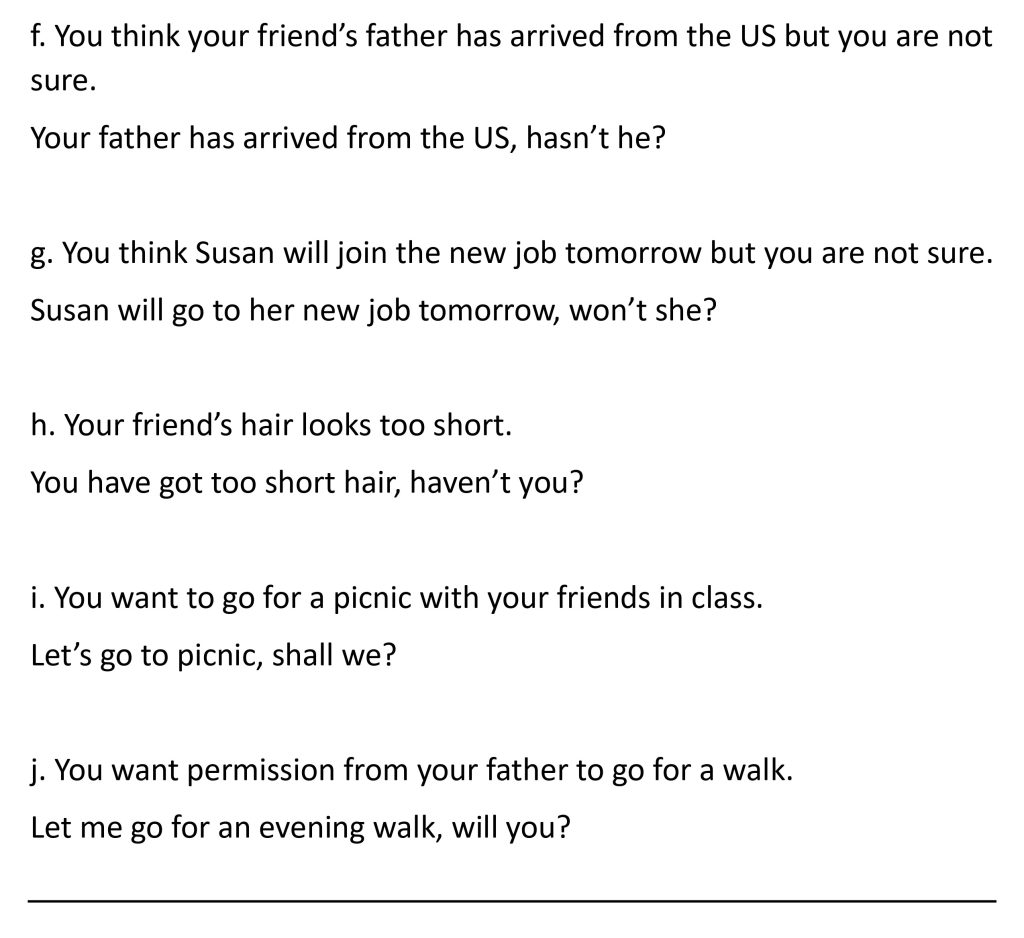
Summary of Family Exercises
The Class 12 English Family chapter explores how the concept of family has evolved across time and cultures. In this Family chapter, students learn about various family roles, structures, and types—such as nuclear and extended families. To begin with, the Class 12 English Family unit defines what a family is and explains how it offers emotional, psychological, and social support.
Moreover, it discusses how family structures have changed—especially in the West—due to factors like industrialization and urbanization. One major highlight of the Class 12 English Family chapter is the shift from patriarchal families to more egalitarian systems. In addition, the chapter touches on legal aspects such as family law, marriage, and child protection.
Furthermore, it compares traditional family systems with modern realities. For instance, in Nepal, the Family chapter notes changes like the rise in nuclear families, increasing divorce rates, and a growing number of elderly people in old age homes.
Ultimately, by reading the Class 12 English Family text, students are encouraged to reflect on cultural changes and understand the importance of strong family bonds. Whether discussing global trends or examining the state of families in Nepal, this chapter promotes critical thinking about how families shape society.
Key Takeaways
- Definition: A family is a group bound by blood, marriage, or adoption, providing love, care, and support.
- Types of Families: Nuclear (parents and children) and Extended (including grandparents, uncles, aunts, etc.).
- Oldest Form: The nuclear family is believed to be the oldest form.
- Functions of Family: Includes emotional, psychological, physical support, and socialization.
- Impact of Industrialization: Led to the breakdown of extended families and rise of nuclear ones.
- Gender Roles: Evolved towards equality after the Industrial Revolution.
- Family Law: Covers legal issues like marriage, child custody, and inheritance.
- Child Protection: Modern laws ensure education, prevent child labor and abuse.
- Cultural Shifts in Nepal: Growing preference for nuclear families and institutional elderly care.
- Future Trends: Technology and modernization continue to influence family dynamics.
FAQ:
What is the main theme of the chapter “Family” in Class 12 English?
The main theme is the evolution and significance of family in providing emotional, social, and legal support in changing societies.
What are the key differences between nuclear and extended families as discussed in Class 12 English?
Nuclear families consist of parents and children, while extended families include multiple generations like grandparents, uncles, and aunts living together.
According to the Class 12 English text, how has industrialization affected family structure?
Industrialization led to urban migration, breaking down extended families and increasing nuclear families.
What does the chapter say about the patriarchal nature of medieval European families?
It states that medieval European families were male-dominated and extended in structure.
How is gender equality addressed in the chapter “Family”?
The chapter explains that after the Industrial Revolution, gender roles became more equal, and responsibilities were shared.
Why are elderly people increasingly seen in elderly homes in Nepal, as mentioned in Class 12 English?
Due to the decline of joint families, modernization, and lack of emotional and financial support, more elderly are living in care homes.
What is the importance of family law discussed in this chapter?
Family law deals with legal matters like marriage, divorce, child custody, and inheritance to ensure fair treatment.
How does the Class 12 English chapter “Family” relate to contemporary Nepali society?
It reflects modern issues like rising divorce rates, preference for nuclear families, and erosion of traditional joint family values.
What role does socialization play in the context of family according to Class 12 English?
Families are primary agents of socialization, teaching children societal norms, values, and behaviors.
What is the chapter’s message about the future of families?
It suggests that while families may change in form due to modernization, their emotional and social functions remain vital.
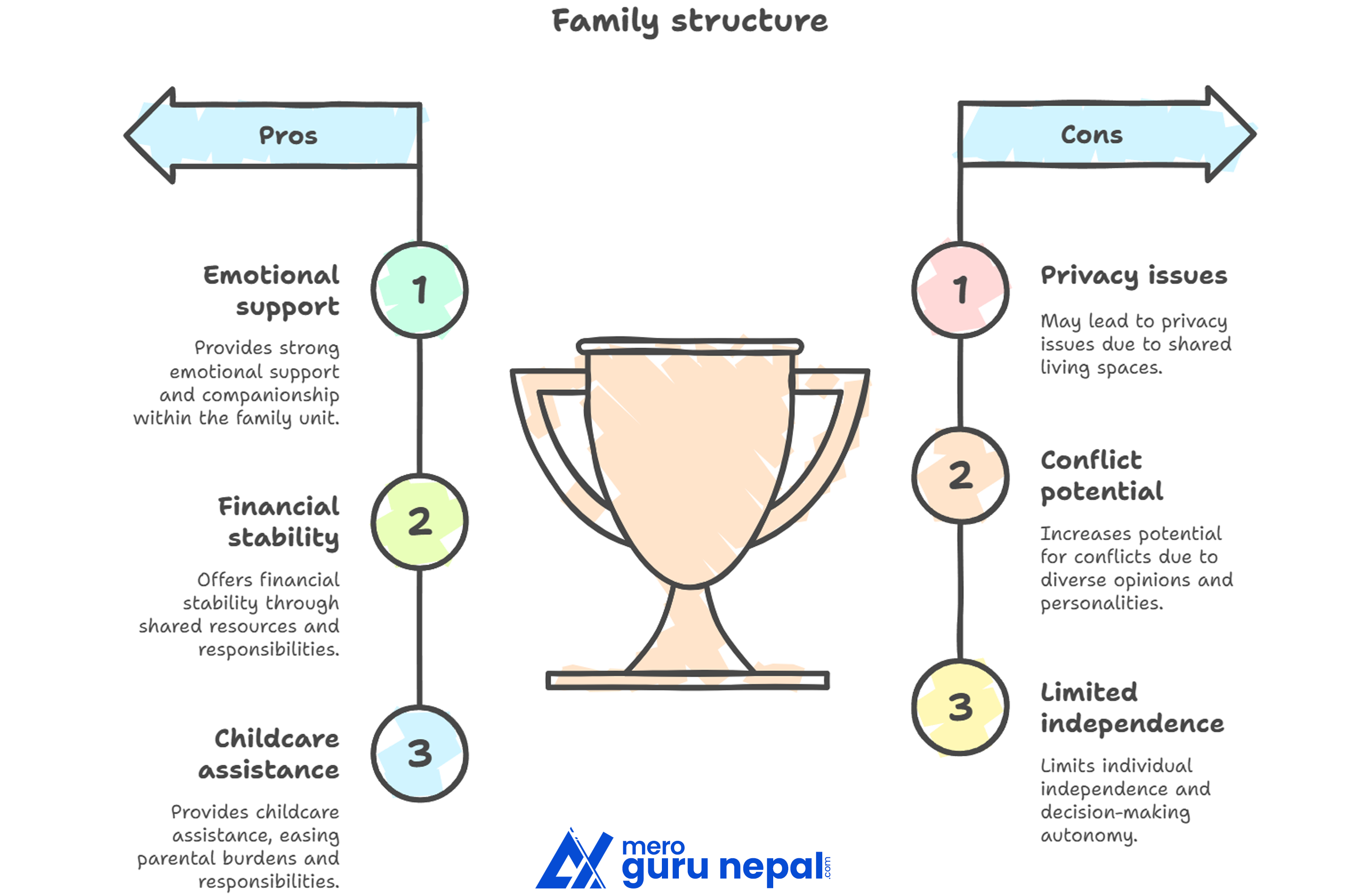
Leave a Reply